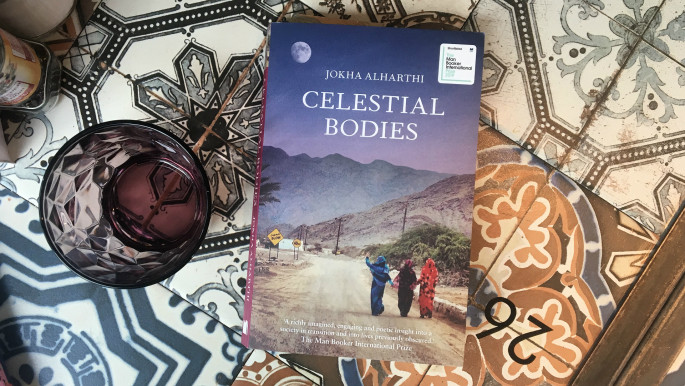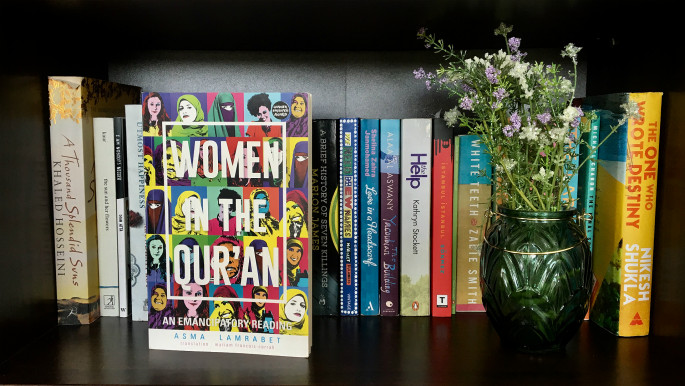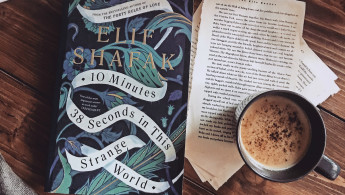
Tequila Leila and the misfits: Elif Shafak's 10 Minutes 13 Seconds In This Strange World
Tequila Leila and the misfits: Elif Shafak's 10 Minutes 13 Seconds In This Strange World
Book Club: Elif Shafak's latest novel chronicles the life and relationships of a prostitute in Istanbul while celebrating the misfits, especially those who stick together in life and death.
7 min read
10 Minutes 38 Seconds In This Strange World is a well-written, immersive story
"People always assumed that a corpse was no more alive than a fallen tree or a hollow stump, devoid of consciousness. But given half a chance, Leila would have testified that, on the contrary, a corpse was brimming with life."
What happens to an individual's consciousness in the minutes after they have died? This is one of the big questions we all think about at some point in our lives. Every religion has some conception of the afterlife and the moments that lead up to it. Even science has attempted to give an answer.
Elif Shafak's latest novel, 10 Minutes 38 Seconds In This Strange World, chronicles the life and relationships of a prostitute in Istanbul, and what remains of her consciousness as she recalls in the 10 minutes and 38 seconds that follow her time of death.
In interviews about the novel, Shafak has talked about being fascinated by scientific researches that have stated it's possible for the brain to be active for around ten minutes after a body has been declared death.
Shafak adds her own 38 seconds to that theory and tells the life story of Tequila Leila, a sex worker in Istanbul who is brutally murdered and thrown into a garbage bin as a final insult.
10 Minutes 38 Seconds In This Strange World is divided into two major sections – The Mind and The Body.
 |
|
| Read more from The New Arab's Book Club: Love, slavery, madness and abuse: Celestial Bodies |
The first part, The Mind, consists of a series of chapters which take place over the 10 minutes and 38 seconds allotted to Leila's consciousness after she has died. In these sections, Leila's own voice and perspective shines through as she is pulled back to key moments from birth to adulthood that create a sense of who she is and why her life turned out the way it did.
Each memory is evoked with sensory detail that stands out in these scenes, from salt and strong cardamom coffee to the smell of a wood burning stove and sulphuric acid. These memories of taste and smell begin each episode of remembrance which eventually forms the picture of Leyla Afife Kamile and how she became Tequila Leila.
The recollections of Leila's life include brief personal histories of the people she met along the way who became her chosen family – her five closest friends had all been rejected by society or marginalised because of who they are. These characters are as important to the essence of this book as Leila is.
In the second part of the novel, The Body, Leila's own perspective is overtaken by that of her five friends who are grieving the loss of their dearest friend. The Body takes place in the days after Leila's death as her friends attempt to give her body a proper farewell – a well-intentioned task that is made difficult due to the law regarding corpses who have been rejected by their blood relatives.
This thread in Leila's story reveals not only her own fate, but that of sex workers in Istanbul whose families reject them, even in death.
 |
This thread in Leila's story reveals not only her own fate, but that of sex workers in Istanbul whose families reject them, even in death |  |
What makes Shafak's novel compelling is the impeccable storytelling that is infused with memories and personal experiences of an individual in a way that it also speaks to Turkey's own growth and development, from its moments of modernisation and radicalisation to inevitable civil unrest in a society that is bifurcating.
Shafak is an author who has, over the years, given her readers stories of individuals who are struggling in society because of who they are.
An important criticism to take up with her work is the strict polarisation that is often noticed with regards to tradition and modernity. As one character remarks in his story, "Although most people in this eastern town were ignorant, crushed under the weight of religion and rigid convention, with the right kind of education they could be saved from their past."
Leila's own story unravels with her exile to the city where she inevitably becomes a prostitute, driven to this conclusion by the way her own increasingly patriarchal home setting stifles, oppresses and mishandles her, a young woman.
 |
While such stories are, unfortunately, common experiences of women in patriarchal cultures around the world, it has become a trope that is most often assigned to Muslim characters |  |
While such stories are, unfortunately, common experiences of women in patriarchal cultures around the world, it has become a trope that is most often assigned to Muslim characters. And why is the cure for tradition education? Can the two not coexist?
Yet, a closer reading of the novel reveals that Leila breaks out of one prison, only to fall into another. Urban Istanbul, a stark contrast to traditional Van, binds Leila to forced prostitution.
 |
| Read more from The New Arab's Book Club: Women in the Qur'an: 'Reappropriating' Muslim women's destinies |
In Shafak's novel, ultimately, it isn't the small town or city that offers her character a chance at a better survival, a better life and existence. It is Tequila Leila's friends. Her chosen family. The people she met over the years who understand her in a way her own parents never could.
Among these friends is D/Ali, an artist, activist and the love of her life. Leila's five closest friends are: Sinan, her childhood best friend; Jameelah, a woman from Somalia who arrived in Istanbul as a victim of human trafficking; Zaynab122, a Muslim refugee from Lebanon who is a deeply spiritual person but is marginalised due to her dwarfism; Humeyra, a woman who fled her abusive marriage; and Nalan, a trans woman from Anatolia.
It is Nostalgia Nolan who believes that there are "two kinds of families in this world: relatives formed the blood family; and friends, the water family."
 |
There are 'two kinds of families in this world: relatives formed the blood family; and friends, the water family' |  |
The "water family" is what a person makes themselves, with their closest of friends. Moments before her brain shuts down, Leila thinks about her friends who she believed were her "safety net", "On nights when she was mistreated by a client, she would still find the strength to hold herself up, knowing that her friends, with their very presence, would come with ointment for her scrapes and bruises, and on days when she wallowed in self-pity, her chest cracking open, they would gently pull her up and breathe life into her lungs."
The final chapters or vignettes of the book are a testament to Leila's belief in her friendships. Many stories end with the death of the protagonist or the central character, and we wonder what happens after they're gone, after their chapter has closed.
In 10 Minutes 38 Seconds In This Strange World, we witness how Leila is remembered, how her friends pull through to make sure that their friend receives the respect and dignity that she deserves in her death. The story ends with a misadventure which is illuminated by the love, care and tenderness of Leila's friends.
The ending of the novel expands the depth of its scope and meaning. It moves beyond Tequila Leila's story and raises the curtain on who is buried in the Cemetery of the Companionless, which is located in Kilyos, Turkey. As the attitude towards Leila's corpse becomes clearer to the reader, so does the cultural persecution of sex workers and marginalised members of the community become evident.
The people buried at the cemetery are assigned graves marked by numbers, their names erased. Among the people buried in the Cemetery of the Companionless are refugees, many of whom drowned in the sea while trying to find safer shores, sex workers who were disowned by their families and members of the LGBTQ+ community.
Overall, 10 Minutes 38 Seconds In This Strange World is a well-written, immersive story that tells the story of a sex worker's life and in doing so reveals the power of friendships. Elif Shafak's latest is a book that celebrates the misfits, especially those who stick together in life and death.
Sumaiyya Naseem is a Bookstagrammer and freelance writer and editor who specialises in Middle Eastern and Muslim stories. In 2019 she joined the Reading Women Podcast as a guest contributor to talk about South Asian and Middle Eastern narratives.
Follow her on Instagram: @sumaiyya.books
The New Arab Book Club: Click on our Special Contents tab to read more book reviews and interviews with authors:



